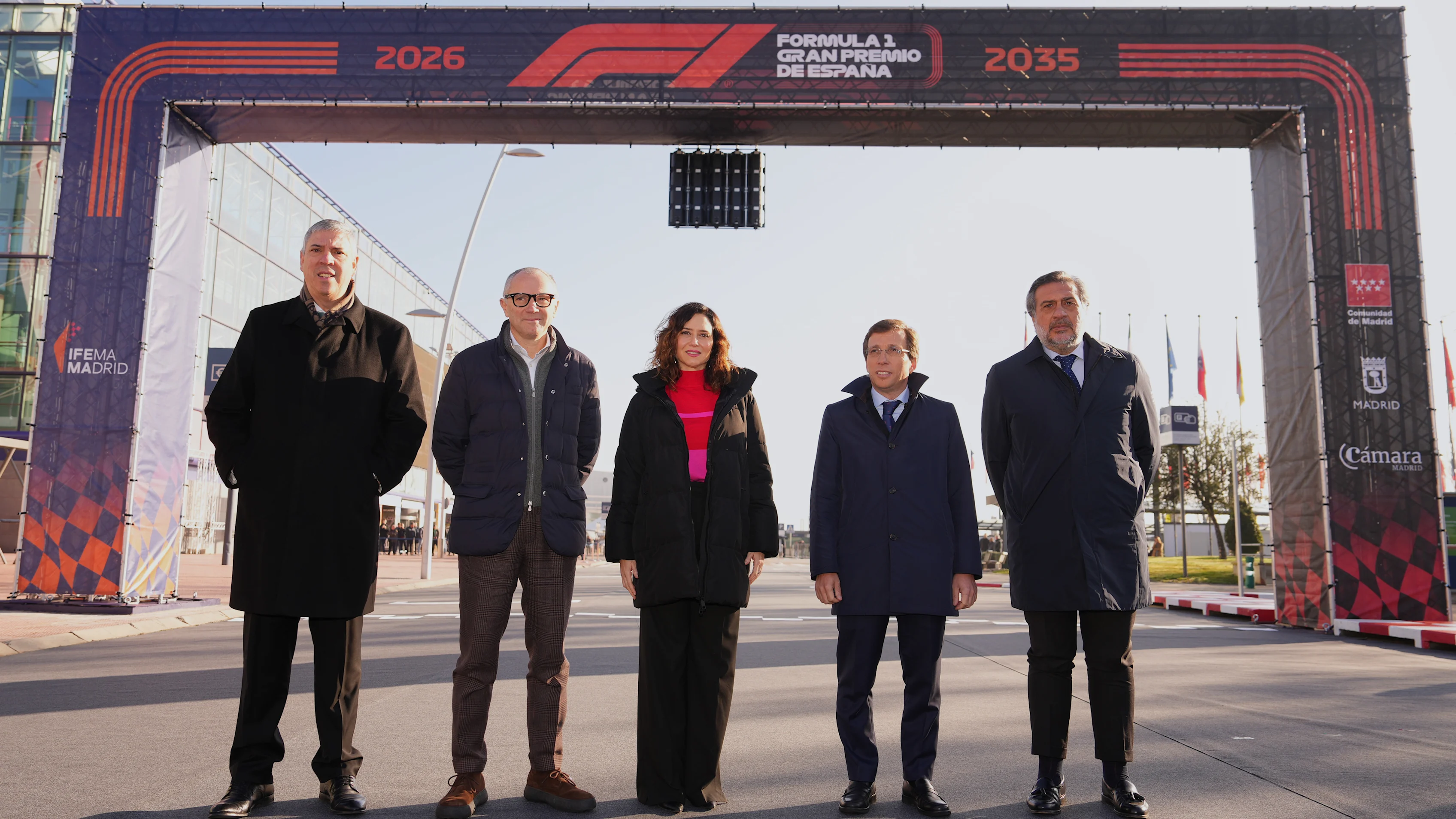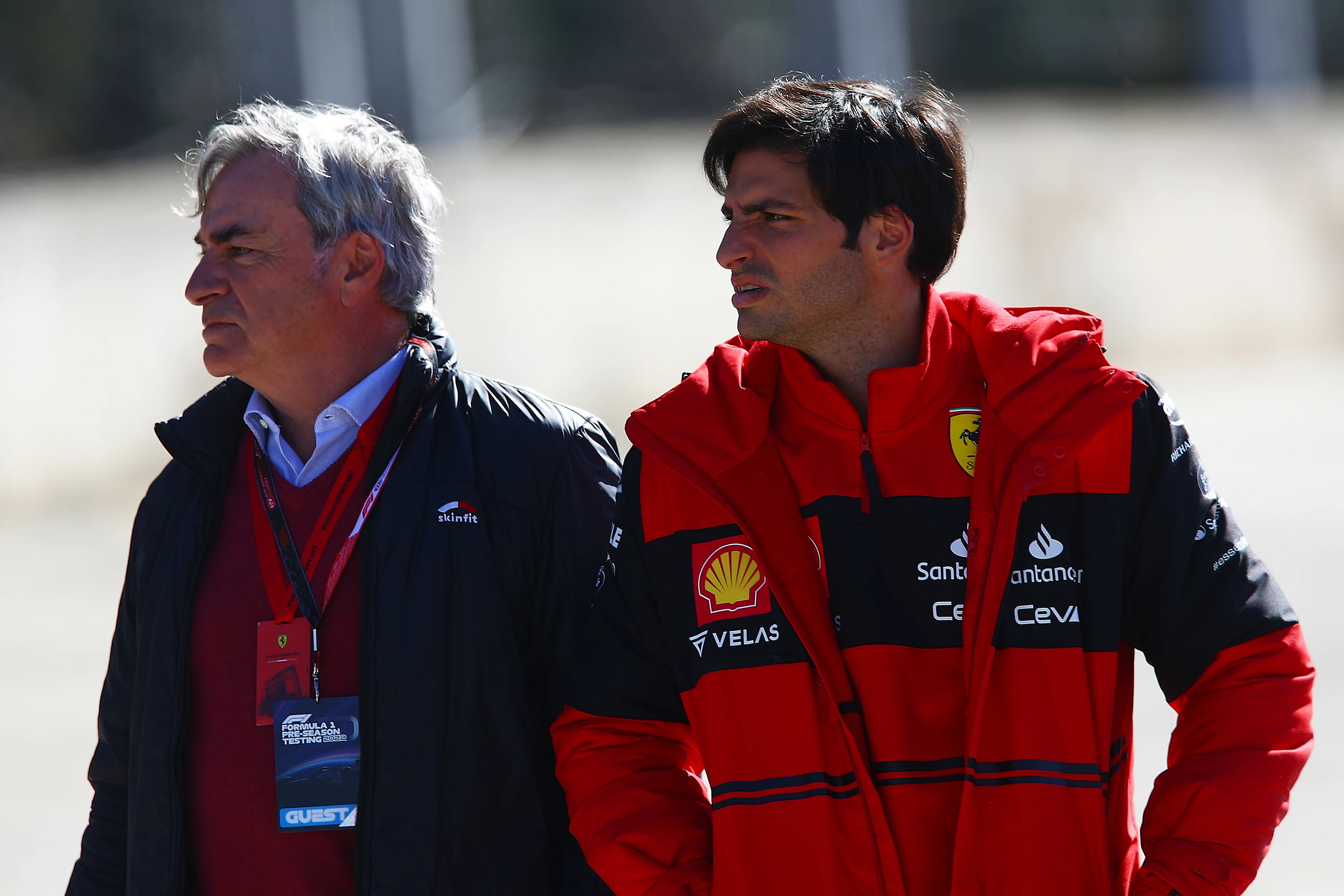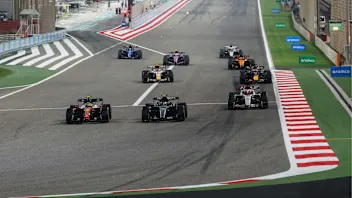EXPLAINED: Your key questions answered as Madrid joins the F1 calendar from 2026

New race alert! The Formula 1 calendar will have a fresh face in 2026. Read on to find out more…
What’s the big news?
The Spanish Grand Prix is moving to Madrid from 2026, after the country’s capital city signed a 10-year contract to host a race.
I didn’t realise Madrid had a race track…
Well, Formula 1 raced at Jarama around 40 years ago, but that circuit was a permanent venue located in San Sebastian de los Reyes, 20 miles north of Madrid.
But when Madrid returns to the calendar, the new purpose-built venue will be just a short ride away on public transport from the city centre.
READ MORE: Madrid to join Formula 1 calendar from 2026 in new long-term deal
Ah, so it’s easy to get to, is it?
You’ve got the bus. You’ve got the train. You’ve got the metro. At just 16km from the centre, it’ll take you no time at all.
And if you’re flying in for the day, how does just five minutes on a tram from the international airport sound?
The circuit will be built around the IFEMA Madrid convention centre, and the promoter says 90% of fans can get to the track via public transport, while others can walk from the swathe of accommodation within a stone’s throw.

Nice. What’s the track like?
It currently stands at 5.47km and will feature 20 turns, with a mixture of slow, medium and fast corners. And of course there are some long straights and big stops to promote overtaking.
The final design spec hasn’t been finessed yet, and it naturally requires homologation (signing off to you and me) by the FIA – but there’s plenty of time for that. You can find more detail about the current plans here.
What’s the access going to be like?
The venue will have capacity for 110,000 fans per day, spread across general admission passes, grandstand seating and VIP hospitality.
This is a long-term project, so as the race beds in and finds its feet, the promoter plans to grow the capacity to 140,000 per day over the first half of its agreement. That’ll make Madrid one of the largest venues on the F1 calendar.
I like it. But why Madrid?
How long have you got? Madrid is an extraordinary city, which features colourful street markets, a world-class art scene, incredible museums and exquisite post-industrial landscapes.
It ranks among the leafiest cities in Europe, with a plethora of open spaces, such as the Madrid Rio and the Retiro, and you can’t swing a cat without bashing into a traditional tapas bar, hip cafe or heavenly-looking alfresco square.
And if that’s not enough, for those who seek out the sun, there are more cloudless days per year than almost any other city in the world (it has around 350 sunny days per year).
Is Madrid a sporting city?
Spain loves its football. It’s the country’s most popular sport, with two world-class football teams – Real Madrid and Atletico Madrid – calling the city their home.
This year, the city hosts the final leg of the Vuelta de Espana – one of cycling’s Grand Tours – and is the regular home of the Mutua Madrid Open – an ATP Masters 1000 and WTA 1000 tennis tournament that is second only in stature to a Grand Slam.
It’s also home to motorsport royalty, in the form of the Sainz family, Ferrari’s Carlos Sainz and his two-time World Rally champion father were both born in the city.

How does Spain feel about F1?
While football is the number one, Formula 1 has a loyal following.
The Spanish Grand Prix has had an uninterrupted run on the calendar since 1986 – and even had two races between 2008 and 2012.
It helps, of course, that the country has not one but two drivers to throw their weight behind in the form of two-time world champion Fernando Alonso at Aston Martin and Sainz.
In 2023, Spain had a total season TV audience of 77m, which is around 3.5m per race on average and an 84% increase versus the previous year.
Over 10m watched last year’s Spanish Grand Prix, with social media following rising 23% to 882k and 4m unique visitors heading to Formula1.com – an increase of 45% versus 2022.
Next Up
Related Articles
.webp) ExclusiveDrive to Survive’s producers on how Season 8 came together
ExclusiveDrive to Survive’s producers on how Season 8 came together Cadillac confirm first upgrades for Australia debut
Cadillac confirm first upgrades for Australia debut The incredible numbers behind Season 8 of Drive to Survive
The incredible numbers behind Season 8 of Drive to Survive Mario Isola to leave Head of Motorsport role at Pirelli
Mario Isola to leave Head of Motorsport role at Pirelli Unlocked5 of the best young drivers waiting for an F1 chance
Unlocked5 of the best young drivers waiting for an F1 chance The family tree of F1's 11 teams and how they came to be
The family tree of F1's 11 teams and how they came to be